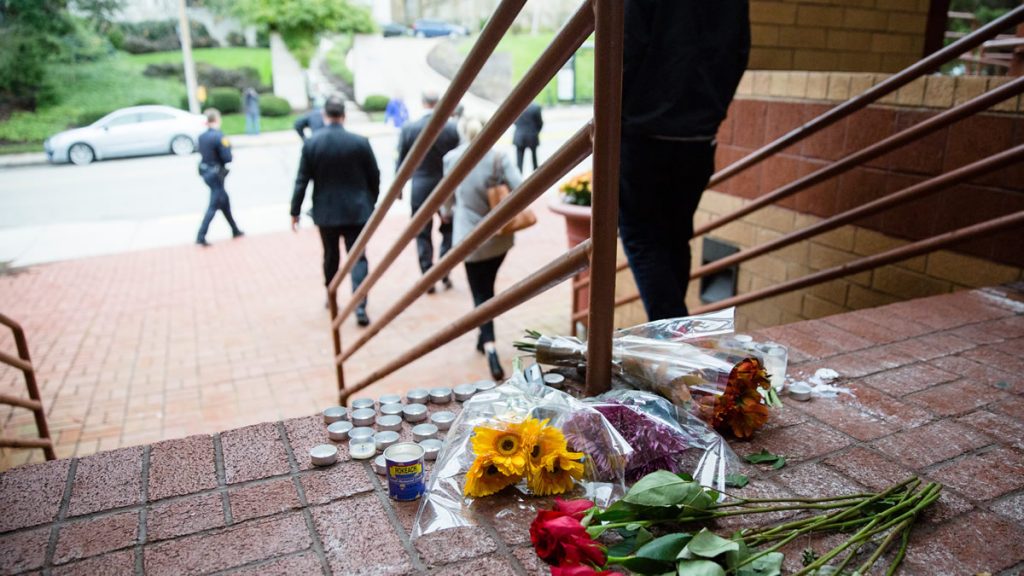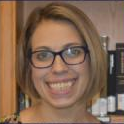
As a Baltimore City school teacher, it is common to comfort my students who have lost friends, relatives, and community members to violence. In the daily grind of teaching, grading, mentoring, meetings, planning, and, of course, consoling, it is easy to question the existence of something greater.
Then again, perhaps we are the something greater.
I’ve been fortunate to be given the opportunity to learn with a phenomenal group of educators at the Institute for Islamic, Christian and Jewish Studies as part of their Teacher Fellowship program. We learned about faith, world religions, and how to make these complex ideas tangible for young people in our classrooms.
It was an amazing experience to feel that fresh invigoration of acquiring new perspectives. My husband would often joke, “What religion are you converting to now?” and I would gush about the empowerment of Muslim women or how the Bhavacakra made my brain hurt with questions. My hand and thoughts could not keep up with all the notes I had been taking. It had been a long time since I had that “learner’s high,” and I missed it.
Then it was back to the daily grind of a city school teacher. And then there was the shooting in a synagogue in Pittsburgh during Shabbat services. As a Jewish mother, my heart and head went to a very dark place.
The first person to reach out was a fellow ICJS teacher fellow who is a practicing Muslim. She did not need to be of my faith to accept me and my faith as valid and deserving of space to feel safe in my religious practice. She did not need to be of my faith to understand, all too well, how hate can shake your foundation and make you question your safety at every turn. She, also, did not need to be of the same faith to know that love and acceptance was something that could bind us and help us form a friendship based on respect for each other, common ground in motherhood, and sadly, knowing what it means to be in a targeted population.
It was not long before I was extending the same words of comfort to her when the New Zealand attacks happened, and shortly after to my Christian friends and colleagues when a church was bombed in Sri Lanka on Easter.
The trauma sustained by the world’s religious community reminds me of the daily trauma sustained by my students in Baltimore City. My students understand all too well what it means to not feel safe, to be worried sick about their parents, siblings, and friends. To feel targeted not by their religion per se, but by their nation of origin or color of their skin. My students also want the same thing—to feel love and acceptance.
We all want acceptance and love. Tolerance is no longer enough. We must accept our brothers and sisters of all faiths, give them the space to practice that faith in a safe environment, and show love to them even if their beliefs and practices are not the same as ours.
We must also do the same within our communities in Baltimore. Our city needs to accept and love all our children. We must show love even if their beliefs, or skin color, or nation of origin, is not the same as ours.
So here is my challenge to all brave enough to try: Be the something greater that you are looking for in this world.
G-dly acts are not impossible for the every-woman. We can feed the hungry, provide shoes to the shoeless, care for the elderly or young, shovel an extra driveway in the winter, bring an extra sandwich on the drive to work to give to the homeless man.
These micro-mitzvahs can change the world.
Society is quick to say that teachers, nurses, social workers, and doctors are doing G-d’s work. However, G-d’s work isn’t limited to just those professions and, honestly, we cannot do it alone.
Our world needs more love and acceptance. Our city needs more love and acceptance. We can change the course and combat the emboldened hate with resounding love.
 Caroline Weiss Stiles is a World History Educator at Patterson High School in Baltimore City. Stiles was a member of the 2018-19 ICJS Teachers Fellowship.
Caroline Weiss Stiles is a World History Educator at Patterson High School in Baltimore City. Stiles was a member of the 2018-19 ICJS Teachers Fellowship.
Opinions expressed in blog posts by the ICJS Teacher Fellows are solely the author’s. ICJS welcomes a diversity of opinions and perspectives.